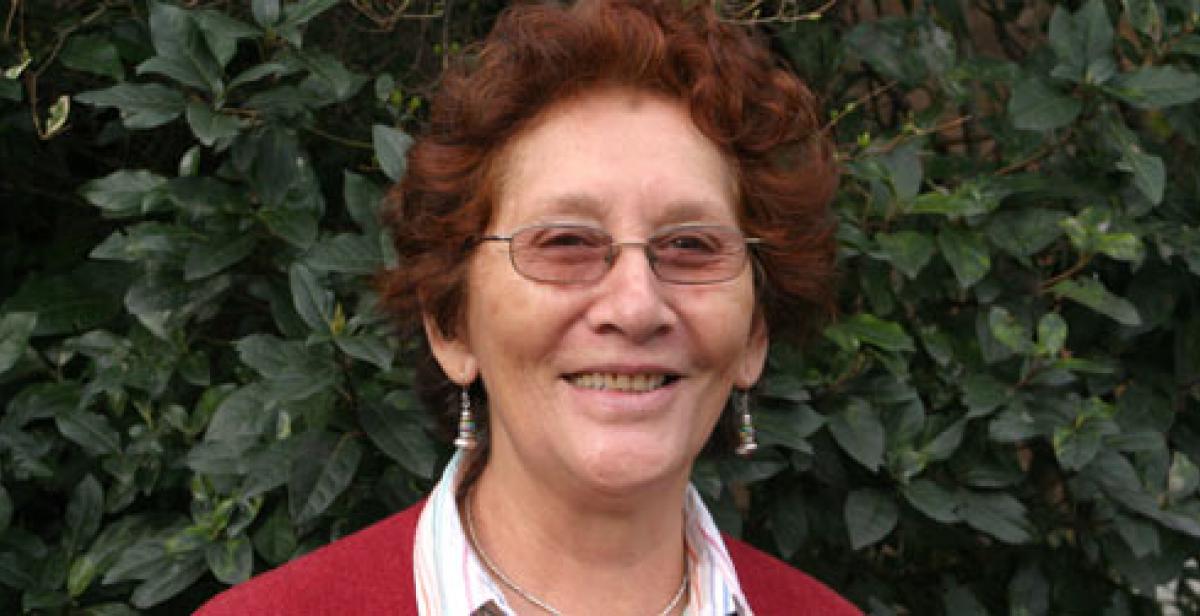Progressio and Christian Aid have teamed up to work on a new joint programme in Peru. Here’s what Programmes Director Edith Montero has to say about the challenges her new role presents her with...
Edith Montero has lived through some fascinating times. Progressio’s new director in Peru studied in Berlin during the dark days when the wall divided the city’s people, and later returned to Peru in the late 1980s to work on human rights at the height of the warfare between the Shining Path guerrillas and government forces. It was a dangerous time, but Edith says she always wanted to work with people living through troubles.
“How can you see people suffering and turn your back on them? We are a country with many needs,” she says of her homeland, Peru.
Edith comes from a town on the edges of the sprawling city of Lima at the foothills of the Andes - where the two worlds of a rich urban elite and poor Quechua-speaking migrants meet. While the upper classes water their gardens with drinking water, she and her neighbours have access to water only three times a day in short bursts. Many in the city do not have water for drinking or cooking.
Inequality and the 'poverty map' of Peru
With the stark poverty of Africa increasingly grabbing both the headlines and global funds for tackling poverty, Peru’s ‘middle income’ label masks pockets of poverty as stark as anywhere in the world.
“The issue here is inequality. It’s not as simple as just comparing Peru to poorer countries in Africa,” contends Edith.
She continues: “Inequality results in pockets of poverty. And in those places people are as poor as the poorest anywhere. There is malnutrition and children are dying. If you look at a ‘poverty map’ of Peru, that’s where Progressio and Christian Aid are working – in the poorest places.
Central to the collaboration between Progressio and Christian Aid is work to improve people’s access to rights – currently millions of Peruvians cannot access water supplies and other basic services and they are excluded from political decision-making.
“It’s a difficult cycle to escape,” says Edith, “but international cooperation helps bring about change. Even if you are poor materially, you can still have culture and an opinion. That’s what matters. When you have education and information you have opportunities.”
The dream team
Peru is sometimes described as ‘a poor man sitting on a bench made of gold’ – such is its mineral wealth. Many of the country’s social conflicts are caused by poor management of these resources.
One of the development workers Edith will be supervising is working with the Peruvian NGO Grupo GEA to support local government and local communities to work together to reduce pollution and improve the management of the water that flows down the river Rimac - the main source of irrigation for many small farms that feed the city of Lima.
It’s an exciting project because for the first time the Municipality of Lima has sponsored an Environmental Fund - with contributions from all the companies and industries that pollute the river Rimac - that will be used to pay communities to provide services to ensure the sustainable management of the river.
Putting what's on paper into practice
“Centralisation, corruption and a lack of respect for people and the environment means wealth doesn’t get distributed fairly,” says Edith. “So you end up in a situation where a big international company is extracting gas from very poor places. The gas goes out, but the people living there still have no electricity or running water. This is what we are working to change.”
“We need justice and equality – but not just on paper, in practice too. We need to put the values that we’ve inherited from our experiences, our families, our communities into practice.”
A passion for the poor
Another massive challenge facing Peru is being the third most vulnerable country in the world when it comes to climate change.
“Cold snaps are colder and more prolonged than before. Some children are so poor that they have to walk around in the snow in bare feet – some die from the cold. Farmers are losing their crops, their alpacas, their livelihoods, leaving their families in desperate need.”
With challenges like these facing poor communities in Peru, Edith Montero certainly has her work cut out for her. But it’s clear she has tons of passion for bringing about change and a wealth of experience to draw on as she braces herself for challenging times ahead.
Two Progressio development workers fully funded by Christian Aid will be working in Peru with partner organisations Grupo GEA and CEPES, the Peruvian Centre of Social Studies, over the next two years.
Grupo GEA is working closely with the local communities of three Peruvian river basins on the design and implementation of ecosystem and water conservation projects. CEPES is working to strengthen its communication and advocacy work on water and climate change.
Osvaldo Vasquez, Progressio’s Head of Programmes, has described the collaboration between Progressio and Christian Aid as “an exciting opportunity to further our strategic alliance, share resources and knowledge, and work together towards our joint environmental goals”.
Photo: Edith Montero, Programme Director for Progressio and Christian Aid's joint programme in Peru. (Photo © Esther Trewinnard/Progressio)



